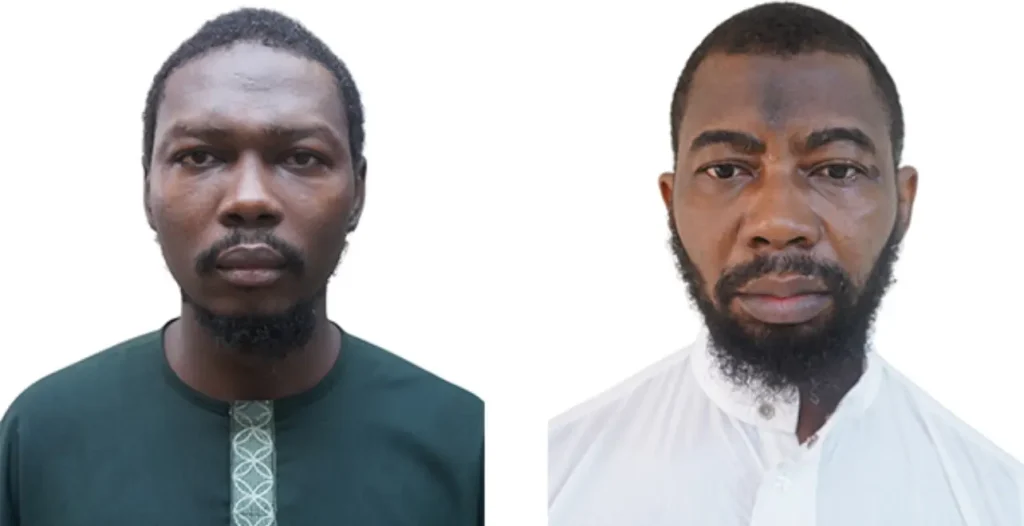The Federal Government of Nigeria is scheduled to arraign two senior commanders of the Ansaru terrorist group, an Al-Qaeda-linked network, at the Federal High Court in Abuja on Thursday.
The accused individuals, Mahmud Muhammed Usman (popularly known as Abu Bara’a or Abbas Mukhtar) and his deputy, Abubakar Abba (also known as Isah Adam or Mahmud Al-Nigeri), will face trial before Justice Emeka Nwite on a 32-count charge related to terrorism.
Who Are the Defendants?
-
Abu Bara’a (First Defendant): From Okene, Kogi State.
-
Mahmud Al-Nigeri (Second Defendant): From Daura, Katsina State, also called Mallam Mamuda.
The charges were officially filed on September 4, 2025, by the Director of Public Prosecutions, M.B. Abubakar, on behalf of the Attorney-General of the Federation and Minister of Justice.
What They’re Accused Of
According to the charge sheet (FHC/ABJ/CR/464/2025), the duo allegedly:
-
Aided and abetted acts of terrorism between 2013 and 2015.
-
Served as founding commanders of the proscribed Jama’atu Ansarul Muslimeena Fii Bilaadis Sudan (JAMBS/Ansaru).
-
Received military-style training, including the use of weapons and fabrication of Improvised Explosive Devices (IEDs).
-
Trained with Jama’atu Nusratil Islami Wal Muslimin (JNIM) in Mali on war tactics.
-
Took part in the 2022 attack on Wawa Cantonment, Niger State, which led to multiple casualties.
How They Were Captured
The suspects were recently captured between May and July 2025 during a high-risk, intelligence-led operation by Nigeria’s security forces.
The announcement of their arrest was made by National Security Adviser Nuhu Ribadu on August 16, 2025, in Abuja. Ribadu confirmed that both men had been on national and international terror watchlists for years.
Why This Matters
The Ansaru group has been linked to several high-profile terrorist attacks and kidnappings across Nigeria, making this trial a major step in the government’s counterterrorism efforts.
Security analysts believe the prosecution of these leaders could deal a significant blow to terrorist networks still active in parts of West Africa.

